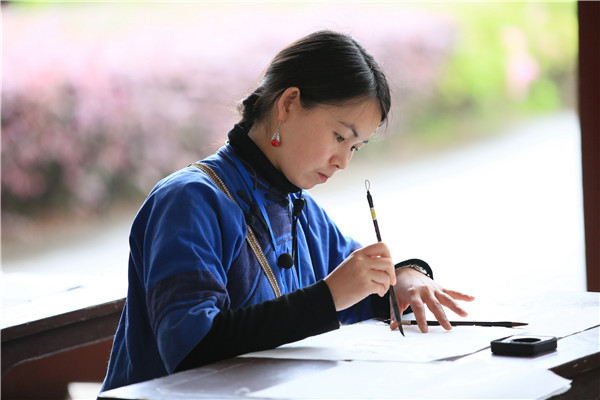Niche script
 |
|
Hu Xin, 29, one of the youngest among seven registered inheritors of Nushu, writes the rare characters. [Photo provided to China Daily] |
Zhao, the Tsinghua professor, attributed the revival of the characters to modern society's advocacy of self-expression.
"After public education was established and women got the right to attend school, Nushu lost its functionality," Zhao says. "However, feminist ideas are getting more emphasis today."
The last living "natural inheritor of Nushu", described by Zhao, is 77 years old. Younger generation practitioners like Hu learned the writing system in school.
"It's not a natural inheritance because people's lifestyles are now thoroughly different," the professor says. "However, new methods are a must to keep it from disappearing."
According to Hu, Nushu classes have been set up in Jiangyong, where the relevant music and folklore are taught as well. Some men have started to learn the writing form.
As a syllabic script, Nushu, in theory, can be translated into other writing systems, Zhao says, adding that it is thus able to record modern content and have a continuous life.
Nevertheless, she warns that the culture cannot be consumed in a superficial way.
For example, Zhao has found many newly-created characters in recent years in Jiangyong. Counterfeits of old Nushu books pop out. In nearby Hubei province, the so-called Nushu village was once set up by a company that hired people of Jiangyong to perform handwriting there.
Thanks to Zhao's efforts, Nushu was included in Unicode earlier this year.
"We used to worry about Nushu dying, but now we worry its original face will be lost," Zhao says. "The modern adaption is inevitable to save cultures from fading away but regulations are needed."
Hu echoes: "Nushu is not widely used in daily life today but it is a legacy recording our history."
Consequently, she has refused many proposals to use the cultural heritage for commercial activity.
Contact the writer at wangkaihao@chinadaily.com.cn
















